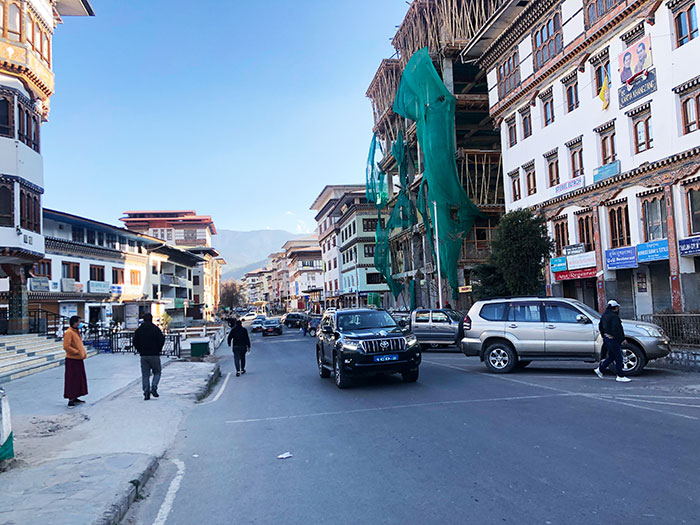Schools, institutions and businesses to operate within the existing Covid-19 norms
Younten Tshedup
After 43 days of lockdown following a local outbreak of Covid-19, life in Thimphu will return to ‘normal’ starting February 1.
This means that people can return to work and institutions and businesses can open as usual. Residents will, however, have to follow existing Covid-19 norms.
Prime Minister Dr Lotay Tshering announced the final phase of unlocking for Thimphu yesterday after all the four megazones in the capital cleared their Covid-19 test.
He said that after more than six weeks and following more than 280,000 Covid-19 tests nationwide, the government was confident that the outbreak was under control and limited only to facilities.
Lyonchhen said all schools will open as scheduled by the education ministry. “Random testing for students and teachers would be carried out every two weeks.”
Offices are required to put up Covid-19 safety focal office and ensure that all Covid-19 norms are in place and implemented at all times.
Construction works can resume. Shops, restaurants and businesses can close by 9pm from Monday. Extra precautions and safety protocols would be introduced in hair salons and barber shops.
Besides the frontline workers, students and teachers, restaurants operators and shopkeepers would also be tested once every two weeks.
However, entertainment centres including movie halls, clubs, karaoke and drayangs will not operate until further notice.
Inter-dzongkhag movement is now allowed and public transports such as buses and taxis can operate. Public transport drivers would also have to undergo mandatory testing every two weeks.
The requirement for seven-day quarantine while travelling from Thimphu and Paro is also lifted.
Lyonchhen said that people travelling outside Thimphu towards the east would be tested at a checkpoint between Menchuna and Lobesa in Punakha. Similarly, for those travelling further west and south, testing would be done at Chudzom checkpoint. This would also apply for those travelling from Paro.
However, the seven-day mandatory quarantine will continue for those travelling from high-risk areas to low-risk areas.
Lyonchhen said that this was because of the high risk of transmission that bordering towns and dzongkhags had from across the border. “We have 700kms of porous border and the situation across the border is still risky.”
All sporting activities will be allowed but without any spectators. The closing time for sports is 11pm. No tournaments will be allowed unless approved by the Bhutan Olympic Committee. For traditional games of archery and khuru, only 10 participants would be allowed at a time.
While any form of gathering is discouraged, a maximum of 25 people can participate for community-based religious congregations. This, however, is contingent upon prior approval from the local taskforce.
Religious gatherings at home are to be limited to family members and funeral rites would be restricted to close circles. Pilgrimage, menchhu, tsachhu and hiking are allowed.
A maximum of 25 people can attend conferences, seminars, workshops and training.
Lyonchhen said that although the lockdown brought about major inconveniences to the people, it was a success in terms of achieving zero number of cases from the communities.
This, he said, was unique to Bhutan as lockdowns in other countries are done to bring down the cases and flatten the pandemic curve. “The capital city also managed to test every household twice, a major feat in terms of establishing the epidemiological status for the unlocking.”
The success of the lockdown, the prime minister said, was not because of the government or the health experts involved, but it was a collective effort of every Bhutanese. “I thank you all.”
He said that being able to clear the entire community within a short span of time couldn’t be just because of science. There must be some divine intervention, he added.
However, he said that the war against the pandemic was not yet over. “While we have lifted the lockdown, we must not let our guards down. Everyone must continue to follow the preventive measures and be vigilant, or else the next outbreak could be far more disastrous.”
He said that to keep the country and its people safe, more tests would have to be done to keep track of possible outbreaks. The government would also soon roll out the nationwide Covid-19 vaccine programme to further protect the people and prevent possible outbreaks, he added.


